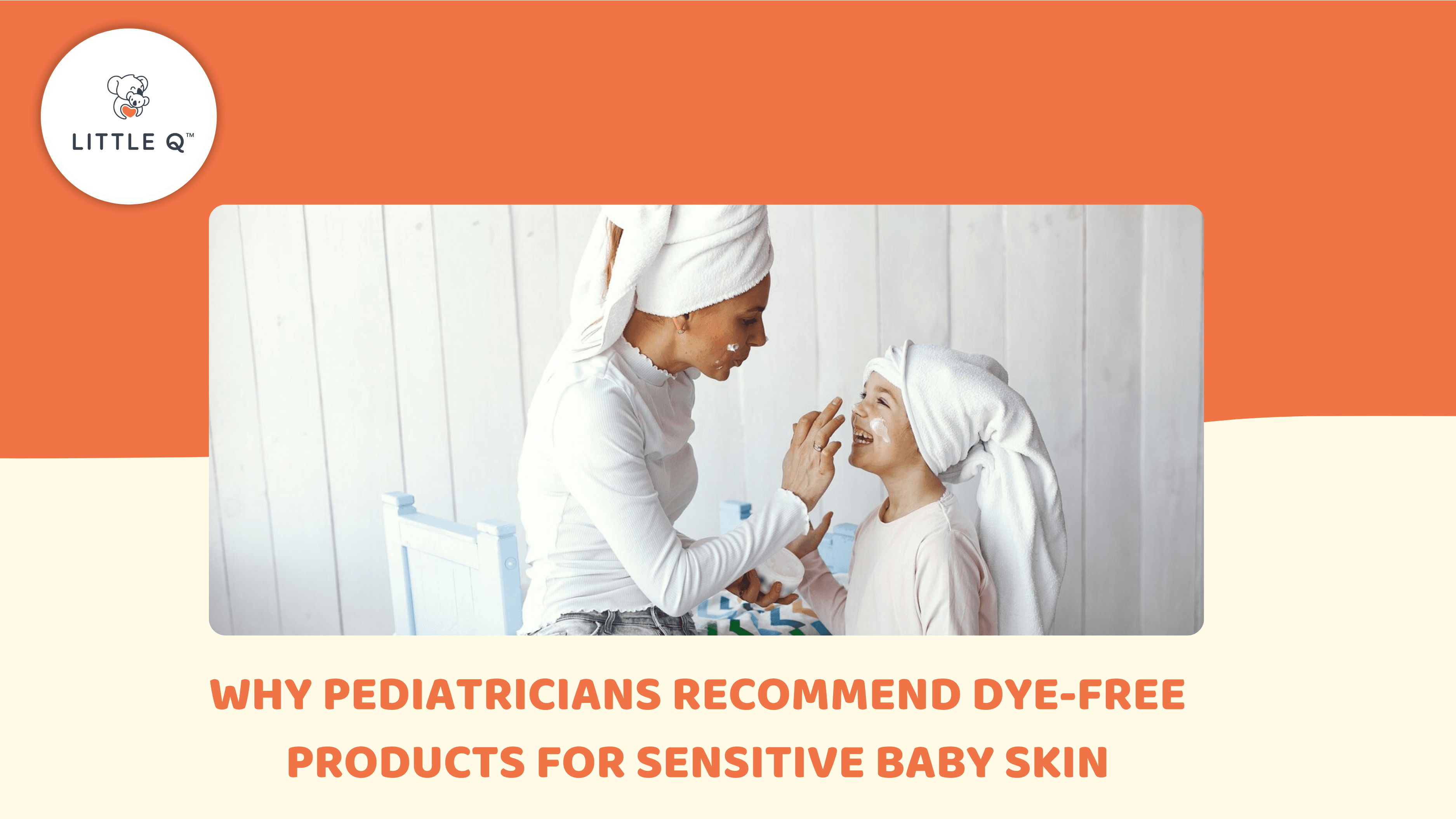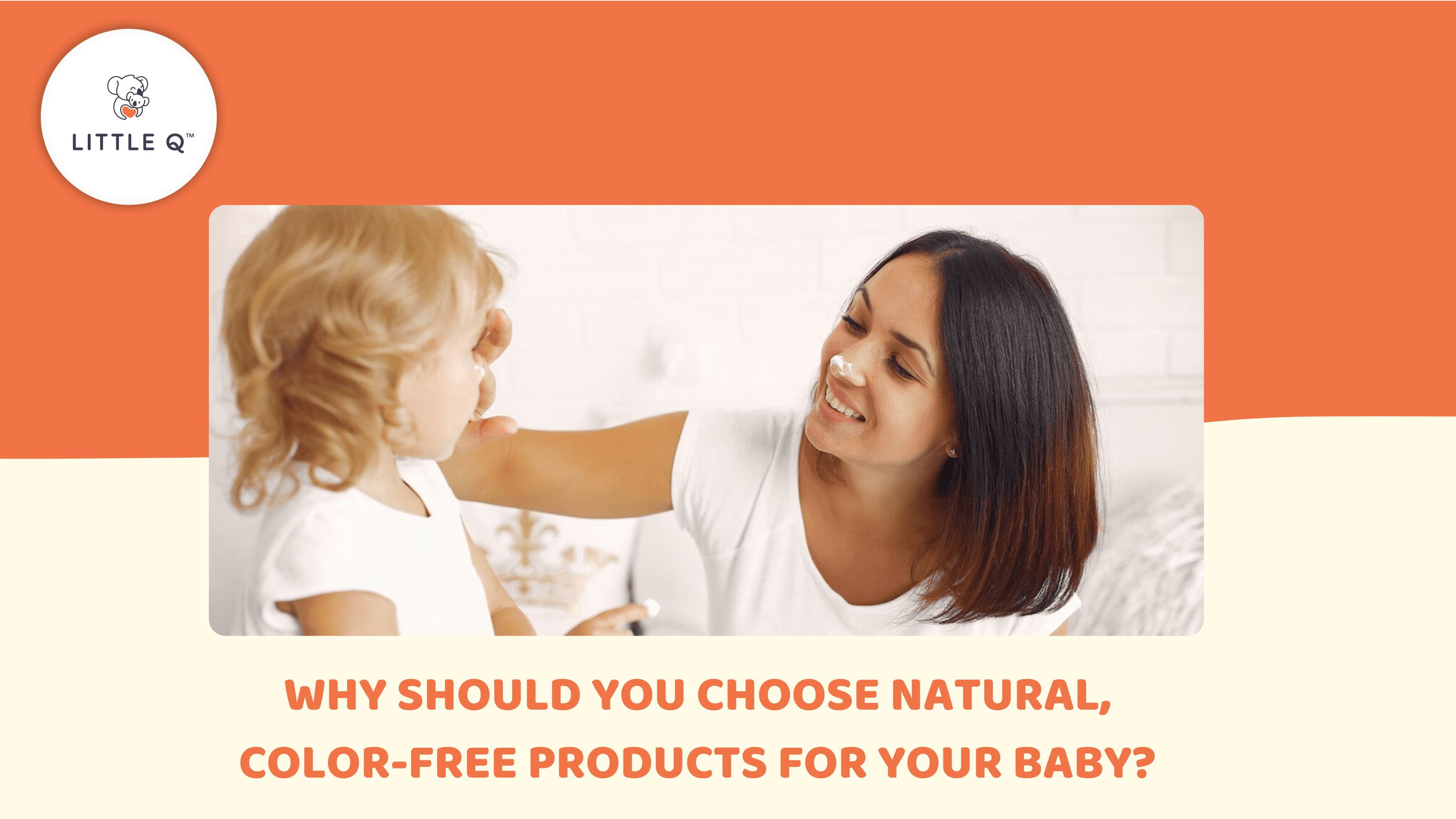Why Pediatricians Recommend Dye-Free Products for Sensitive Baby Skin
Pediatricians often recommend dye-free products for babies with sensitive skin to reduce the risk of irritation, allergies, and eczema flare-ups. Choosing hypoallergenic, gentle skincare can make a big difference in keeping your baby’s skin calm and healthy.
When it comes to caring for your baby's delicate skin, every ingredient matters. Parents are becoming more conscious about what's in the products they use on their little ones, and one ingredient group in particular is raising red flags—artificial dyes.
You may have noticed that many experts lean towards dye-free skincare for babies, and there’s a good reason for it. Babies’ skin is thinner, more porous, and far more sensitive than adult skin. It absorbs ingredients more readily, making it more prone to irritation and allergies.
Let’s dive into why pediatricians often recommend avoiding dyes and what you can do instead to protect your baby’s skin.
The Problem With Dyes in Baby Skincare
Artificial dyes are added to skincare and bath products primarily for appearance. They serve no real skincare benefit—especially for babies. In fact, synthetic colors can do more harm than good. Here’s how:
Potential Allergens: Some dyes, especially those derived from coal tar or petroleum, are known to cause allergic reactions. For babies with sensitive skin, this can trigger redness, rashes, or even more serious skin issues.
Eczema Flare-ups: Babies who suffer from eczema are particularly at risk. Artificial colors can be irritating and may worsen baby eczema, making flare-ups more frequent or severe.
No Added Benefit: Unlike nourishing ingredients like coconut oil or shea butter, dyes offer no skin health benefits. They're only there for visual appeal.
If you’re dealing with baby eczema and artificial dyes are still in your baby’s skincare routine, it might be time for a switch.
Why Pediatricians Prefer Dye-Free Products
While not every product needs a "pediatrician-approved" label to be safe, most pediatricians will tell you the same thing—less is more. The fewer unnecessary additives, the better.
Here’s why many pediatricians recommend dye-free skincare for babies:
Reduces risk of allergic reactions
Helps maintain the natural balance of baby’s skin
Lowers chances of irritation and inflammation
Better for babies with sensitive skin or eczema
When choosing hypoallergenic baby products, always look for labels like “fragrance-free,” “dye-free,” and “gentle for newborns.” These indicators usually signal a product designed with baby skin in mind.
Real Solutions for Sensitive Baby Skin
If your baby struggles with redness, dry patches, or general skin discomfort, it could be due to ingredients like dyes, synthetic fragrances, or harsh surfactants. Try simplifying your routine. Swap out bright-colored lotions or shampoos with gentle, dye-free alternatives.
Here are some trusted ingredients to look for in pediatrician recommended baby lotion or oils:
Cold-pressed oils (like coconut, sunflower, or almond oil)
Plant-based butters (like shea or cocoa butter)
Mild emulsifiers (to lock in moisture without clogging pores)
What Makes Little Q a Safer Choice?
At Little Q, we believe that every baby deserves pure, uncomplicated care. Our products are free from artificial dyes, synthetic fragrances, and harsh chemicals. We focus on plant-based, minimal ingredient formulas that help soothe and protect sensitive baby skin.
Our customers love:
Little Q PHYTO Baby Massage Oil – made with botanical oils that deeply nourish without artificial additives.
Little Q Bathing Bar – a gentle, dye-free cleanser designed to retain your baby’s natural skin moisture.
These products are crafted for parents looking for hypoallergenic baby products that prioritize safety and comfort.
Tips for Transitioning to a Dye-Free Baby Routine
Read labels carefully – Watch out for colorants like “FD&C Blue No. 1” or “Red 40.”
Start simple – Use one new product at a time to see how your baby’s skin responds.
Patch test first – Always try a small amount before applying anything new all over.
Avoid scented products – Fragrances and dyes often go hand-in-hand.
Conclusion
When it comes to your baby’s skincare, ditching artificial dyes is a small step that can make a big difference. Pediatricians favor dye-free skincare for babies because it reduces the risk of irritation, especially for those dealing with baby eczema or sensitive skin. Choosing hypoallergenic baby products made with gentle, plant-based ingredients is one of the best things you can do for your little one’s comfort and skin health.
Explore the Little Q range today to find dye-free, gentle options that give your baby the care they truly deserve.
Disclaimer: The information in this blog is here to help and inform, but it is not a replacement for advice from a doctor or nutritionist. We try to share correct and useful information, but we always suggest talking to your child’s pediatrician or nutritionist for specific advice about their health and nutrition. These professionals know what’s best for your child’s unique needs.









